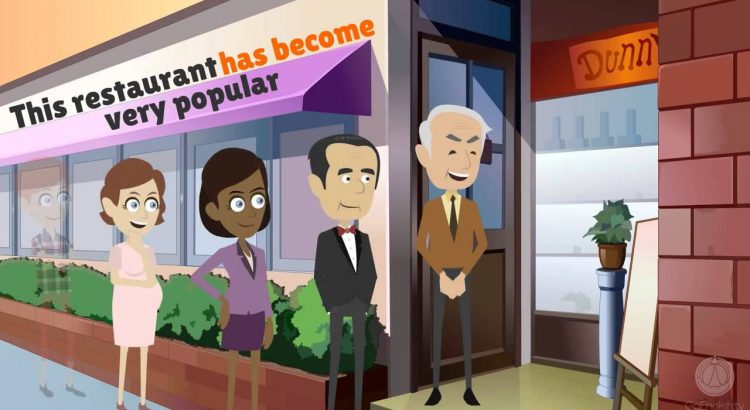The sentence formation follows:
| Singular Number | Plural Number | |
| 1st Person | I have eaten = I’ve eaten | We have eaten = We’ve eaten |
| 2nd Person | You have eaten = You’ve eaten | You have eaten = You’ve eaten |
| 3rd Person | He has eaten = He’s eaten | |
| She has eaten = She’s eaten | They have eaten = They’ve eaten | |
| It has eaten = It’s eaten |
Uses of The Present Perfect Tense:
- It indicates completed actions in the immediate past: She has just gone out = She went out a few minutes ago. We have just had supper = We had supper a few minutes ago.
- It is also used for an action which happened in the past, and its connection with the present is still maintained and possibly they could repeat in the present time, too: I have seen coyotes in that jungle. This implies that we could also see them in the present time. Daler Mehandi has sung many popular songs. This implies that Daler Mehandi is alive and can sing more.
In some case, the impact of action/result could stretch to the future: You have lost this golden opportunity. It implies that you may never get the same opportunity in the future.
3. Some actions that take place in the present perfect often results in the present: She has had a nightmare. (She is probably still in that trauma).
My car has broken down. (I have to call a taxi for my commuting).
I have completed my report for you. (It means my job is done, and you could now start yours by analyzing it).
4. It is used for an action beginning at some point of time in the past and continuing up to the present moment: We have not met for ages. I have not received the repeat order for my produce since last month. She has been sick since last two days.
5. The following adverb or adverb phrases can be used with the Present Perfect Tense:
Just
Often
Never
Ever (in question only)
So far
Till now
Yet (in question and negatives)
Already
Since
For
Today
This week
This month
Lately
Recently
All day
All my life
All the time
Always, etc.
